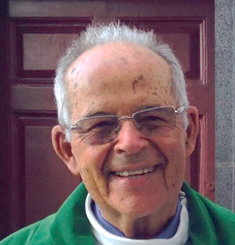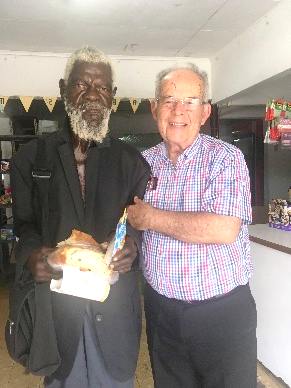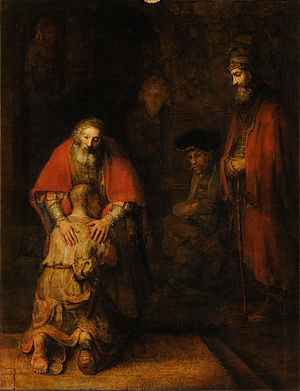
– Brought to you by Fr. Bernardino Andrade (bernardinodandrade@gmail.com)
1.
My rural Parish in California, not far away from the city of San Francisco, was considered a quiet community. But, unfortunately, even in quiet communities, tragedies happen. One day a young man shot his wife in bed and then shot himself. The Police allowed me to enter their house. It was maybe the most horrible scene I have ever contemplated in my entire life. The Police just told me not to touch them and not to give information to the media about what I had seen. They had a one-year- old baby. When I came out of the house the baby came to my arms and «glued» himself to me as if he understood what was happening.
The following day both of us (the baby and I) made the front page of the local newspaper. Two days later, I baptized this baby during the funeral of his mother. The body of his father was shipped to Mexico where his Funeral was held. I thought that something should be done about this tragic event. The following Saturday a group of young boys and girls received the Sacrament of Confirmation during the 5:00 PM Mass. I took advantage of that sacred event to launch a campaign, in the entire community, to collect arms, rifles, pistols, guns and violent toys. Violent toys are so colourful, so attractive, so beautiful but the message is very ugly.
The campaign was a big success. All the weapons were destroyed and transformed into small crosses. The toy guns and weapons were broken into small pieces and glued into a piece of wood also in the form of a cross. All this process took a few days of course. What I didn’t know was that, exactly in that evening, another tragedy was going to take place in this «quiet and peaceful city».
2.
Just a few hours after Mass I checked my voice mail. A message of a parishioner was there with another terrible message: «Father, in such street and such house a man just committed suicide. Please go there». Even if it was at a walking distance, I took my car and «flew» to that house. When I stopped and left my car in the street, the first people I met at the front yard was a group of men drinking beer. Because I don’t believe that beer and guns make a good match, I was a little afraid. However I pretended that I was brave and started shaking the hands of each one of them.
All of them were respectful to me except Roberto, the oldest brother of the man who had committed suicide, and the owner of the gun that killed his brother. He refused to shake my hand and kept saying: «I don’t believe in God». «But even if you don’t believe in God it is OK to shake my hand», I said. Then I pretended that I was in a hurry, left them and «escaped» to the back yard where the tragedy had happened.
The body had been removed and there was a burning candle in its place. A group of women were talking, crying and praying. I also prayed with them and slowly left the place. I passed through the front yard again, trying not be seen but I was caught. I wanted to be with them but I was not feeling safe stopping in a place where beer and guns were mixed.
3.
When I was leaving, a man knelt in the middle of the street and asked me for a blessing. I put my hands over his head, prayed and traced the sign of the cross over him. In this moment, Roberto the one who had more beer and had said a few times that he didn’t believe in God, asked me also for a blessing. Meanwhile he kept saying «I am a murderer». I never knew why he was repeating that but I suspected that he had been involved in the war of El Salvador or Nicaragua and had committed lots of atrocities.
Then I told him: «Roberto, when God created you in the womb of your mother he put a label on you. Do you know the name of that label?» The answer was: «Yes! Murderer». Look Roberto, if you think that you have that label maybe it was you, or the government, or other people who put that ugly label on you. For sure it was not God. I will tell you the name of the label God put on you. The only label God put on you was «MY SON». You are a Son of God. Then he knelt in the middle of the street and asked for a blessing. A little solemnly I made a little prayer and traced, over his head, the sign of the cross. Then he stood up and started repeating «I believe in God… I believe in God…». I confess that because I am not used to those quick conversions, I was still wandering if that quick conversion was a result of faith, or beer.
4.
The next step was as follows. He went to his house and gave me a big and (according to the experts) «beautiful» rifle used in the Second World War. The pistol used in the suicide had been taken by the Police. I took the rifle with me, put it together with the violent toys and other arms that had been collected and put them by the altar. All were put in a basket and offered during the Mass offertory. Instruments of peace and instruments of war were the theme of my homily.
Now I think this would be the punch line of this story:
From that day on, every time I met Roberto, in streets, in supermarkets, in parking lots, in empty or crowded places we greeted each other always the same way. Instead of me saying «good morning» I would yell: «What’s the name of the label?». His answer, louder than mine, was: «MY SON». Can a murderer, a prostitute, a homeless person, a liar, a beggar an abuser say the same? Yes! The only label put in each one’s «package» when conceived in the womb of our mother was: «MY SON»… «MY DAUGHTER»… Since then all of us can sit in His lap, be hugged by Him and smile, or cry on His shoulders. He is my ABBA passionately in love with each one of us.
Love and Peace,
Fr. Bernardino Andrade



